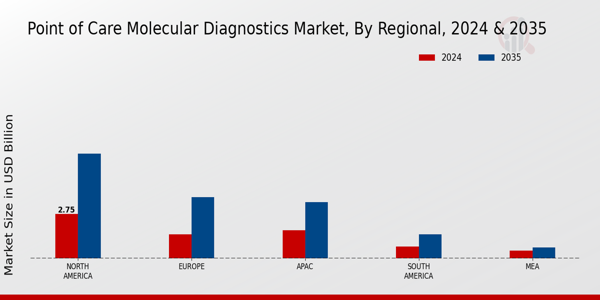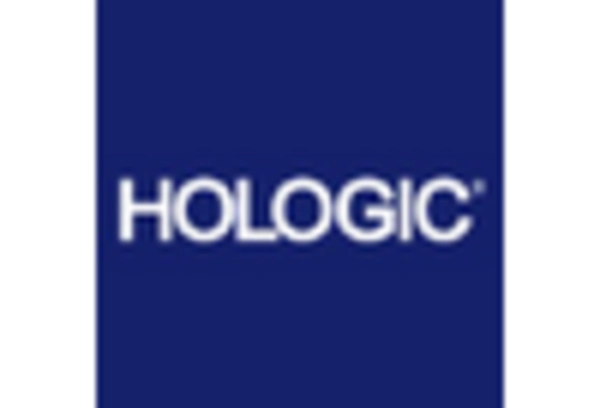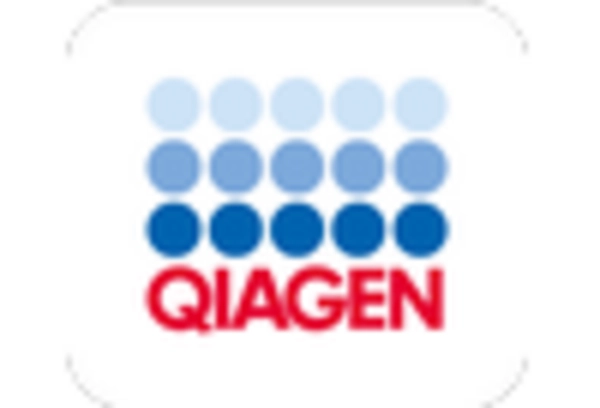Market Share
Point of Care Molecular Diagnostics Market Share Analysis
The Point Of Care Molecular Diagnostics Market is a dynamic space for companies that adopt various strategies for gaining market share because it is at the cutting edge of healthcare technological advancement. One such strategy involves technological innovation of molecular diagnostic platforms. Companies spend heavily on research and development to bring forth small-sized, quick-to-use POCMDs (point-of-care molecular diagnostic) devices into market. These companies are trying to win over health providers and institutions who look for prompt diagnostics with regard to infectious diseases like tuberculosis, genetic disorders such as Down's syndrome, or cancer.
Positioning of market share within the point of care molecular diagnostics’ market is influenced by the adopted pricing strategies. This may involve cost leadership approach that ensures competitive prices for point-of-care molecular diagnostics to cater for different healthcare facilities in regions with strained budgets. On the other hand, premium pricing strategies are likely to be used by firms whose main focus is on the sensitivity, specificity or unique aspects of their molecular diagnostic technologies with a target group consisting of health institutions and practitioners who look at putting in place quality and advanced point-of-care testing solutions.
Different companies segment the Point Of Care Molecular Diagnostics Market according to clinical settings or applications. For example, some devices might have been developed specifically for rapid genetic mutation identification while others are meant for use in infectious disease testing as well as real-time monitoring of treatment response among other applications. By so doing such firms like Biosite can establish themselves as specialized players within the Point of Care Molecular Diagnostics Market and accordingly offer medical solutions catering to diverse requirements of patients as well as medical practitioners.
Besides, distribution channel strategies play an important role in making sure that point-of-care molecular diagnostics are available everywhere. This involves establishment of business relationships between companies and clinics, primary care providers as well as urgent care centers. Digital means currently provide more efficiency and accessibility among health professionals using point-of-care molecular testing through product ordering platforms, training support systems and connectivity networks.
The above mentioned areas are important for those organizations which want to maintain or increase their market share within Point of Care Molecular Diagnostics industry. Technology advancements, automation, demand for innovative solutions in decentralized testing drive change within molecular diagnostic industry all requiring continuous research efforts from industry players. Unilever is one company that appreciates this aspect because it has invested over 1 billion Euros in its research department hence coming up with products like detergent waste reduction sachets.










Leave a Comment